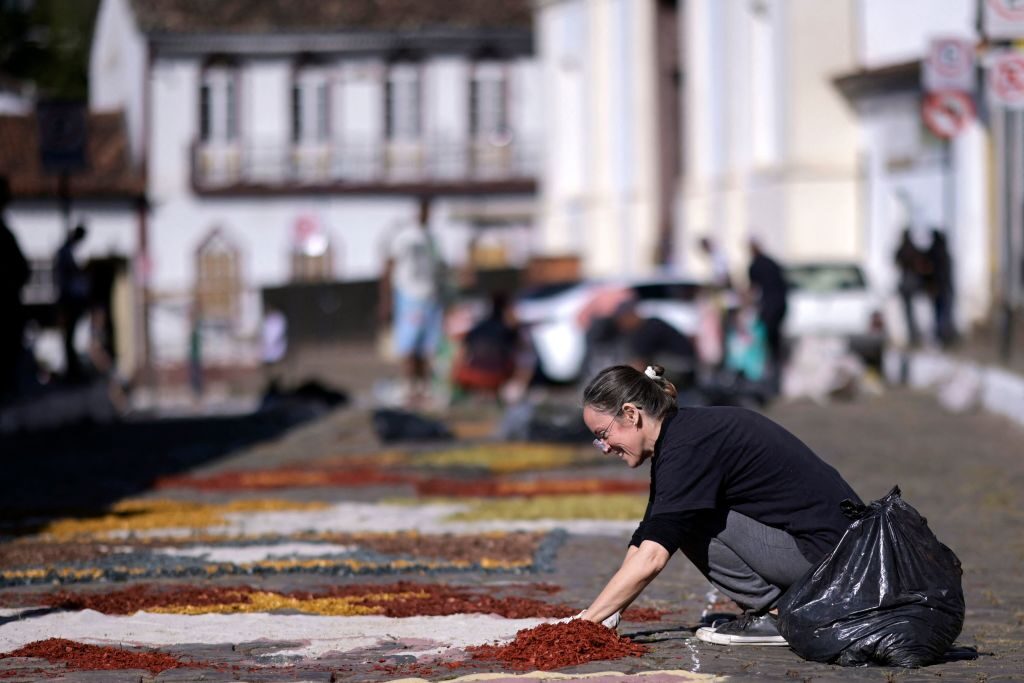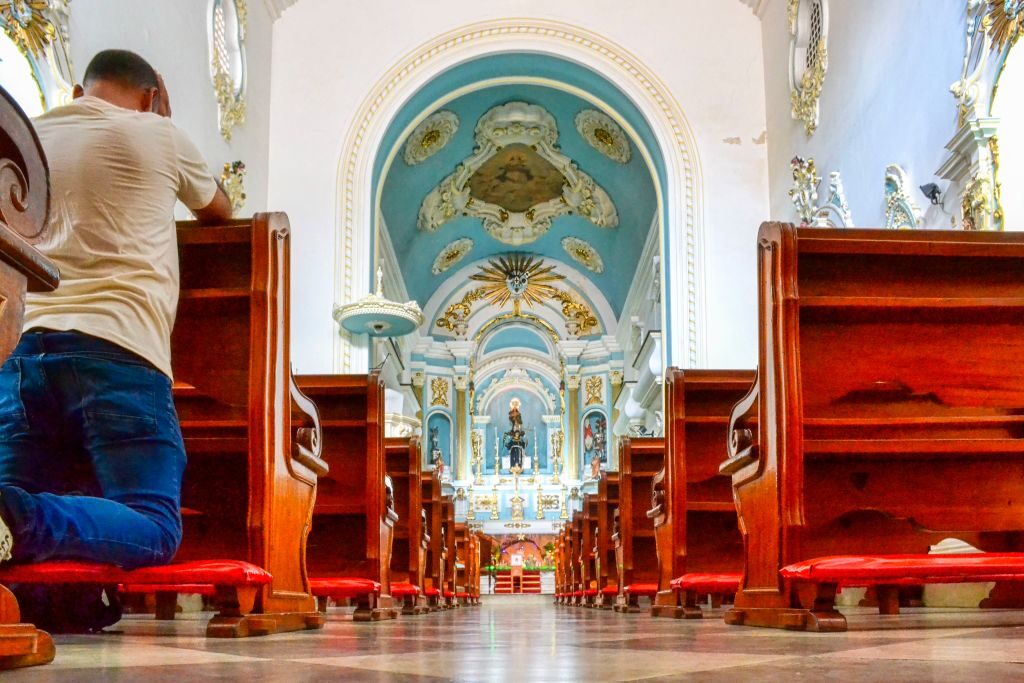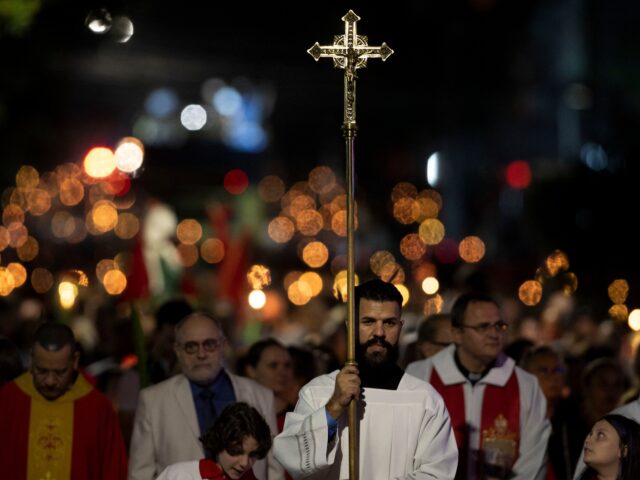Former liberation theologian Friar Clodovis Boff has blamed Liberation Theology for the sharp decline of Catholic belief and practice in his native Brazil.
Boff, brother of celebrated liberation theologian and former Catholic priest Leonardo Boff, insists in a new book that liberation theology’s emphasis on material well-being rather than spiritual growth led many to reject the Catholic faith in favor of biblical Protestantism or no faith at all.
When liberation theology began to gain ground in Brazil in the late 1960s, the country’s population was more than 90 percent Catholic. In the decades since then, the percentage of Catholics in the Brazilian population has plummeted to around 51 percent, ACI Digital reported Thursday.
Moreover, even among those Brazilians who still call themselves Catholics, only about eight percent attend Mass on Sunday, one of the lowest rates in the world. This trend was fueled by the spread of liberation theology, Boff contends.

A catholic devotee participates on the elaboration of a sawdust and sand carpet before the Corpus Christi procession in Marina, Minas Gerais state, Brazil on June 8, 2023. (DOUGLAS MAGNO/AFP via Getty)
“It is necessary for the Church to once again emphasize Christ as priest, as master and Lord, and not just in the fight against poverty and the climate crisis,” Boff declared at the launch of the book The Crisis in the Catholic Church and Liberation Theology, co-authored with Father Leandro Rasera and recently published by Ecclesiae.
With Liberation Theology, “faith is instrumentalized in terms of the poor,” Boff writes, parting ways with his brother Leonardo. “One falls into utilitarianism or functionalism in relation to the Word of God and to theology in general.”
Aware of the damage being caused by liberation theology, especially in Latin America, the Vatican’s doctrinal office published two documents on the topic in the 1980s during the pontificate of Saint John Paul II.
One of those, a 1984 text titled Libertatis Nuntius, addressed “developments of that current of thought which, under the name ‘theology of liberation,’ proposes a novel interpretation of both the content of faith and of Christian existence which seriously departs from the faith of the Church and, in fact, actually constitutes a practical negation.”
“Concepts uncritically borrowed from Marxist ideology and recourse to theses of a biblical hermeneutic marked by rationalism are at the basis of the new interpretation which is corrupting whatever was authentic in the generous initial commitment on behalf of the poor,” the instruction said.
The document also noted that in “certain parts of Latin America,” the recognition of injustice “is accompanied by a pathos which borrows its language from Marxism, wrongly presented as though it were scientific language.”
The letter also said that certain Christians, despairing of every other method, turned to a Marxist analysis, “especially in Latin America.”

Rio de Janeiro, Brazil, Catholic church of Saint Gonzalo Garcia and Saint George. A lone man is on his knees praying inside of the temple. (Roberto Machado Noa/UCG/Universal Images Group via Getty)
In a striking revelation in 2015, the highest ranking Cold War defector declared that the KGB had created liberation theology, exporting it to Latin America as a means of introducing Marxism into the continent.
Ion Mihai Pacepa, a 3-star general and former head of Communist Romania’s secret police who defected to the United States in 1978, has been called “the Cold War’s most important defector.” During the more than ten years that Pacepa worked with the CIA, he made what the agency described as “an important and unique contribution to the United States.”
He is reported in fact to have given the CIA “the best intelligence ever obtained on communist intelligence networks and internal security services.”
“Liberation theology has been generally understood to be a marriage of Marxism and Christianity. What has not been understood is that it was not the product of Christians who pursued Communism, but of Communists who pursued Christians,” Pacepa said.
In his role as doctrinal watchdog, Cardinal Joseph Ratzinger referred to liberation theology as a “singular heresy” and a “fundamental threat” to the Church.

COMMENTS
Please let us know if you're having issues with commenting.